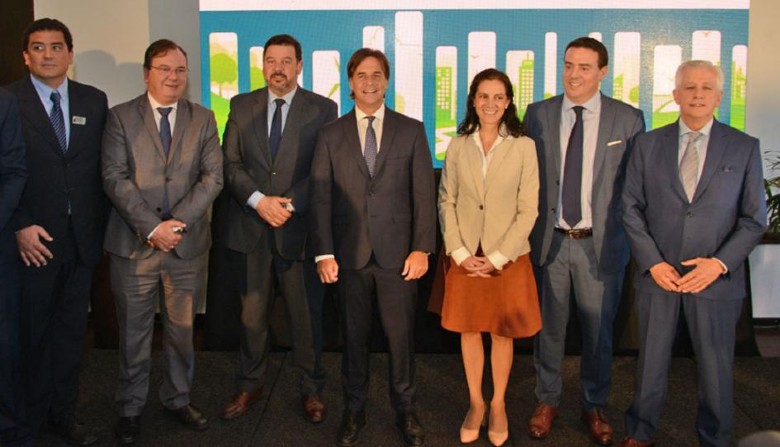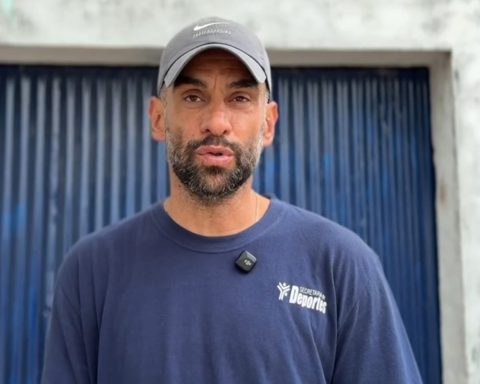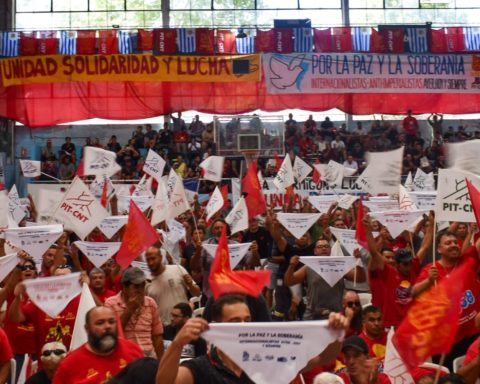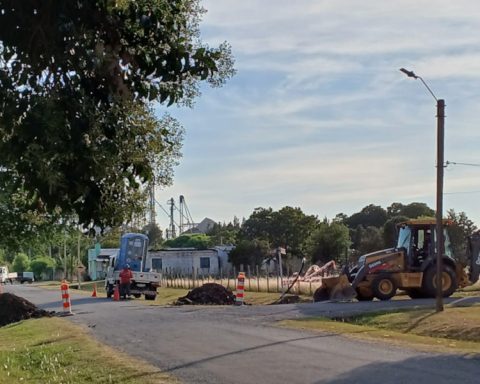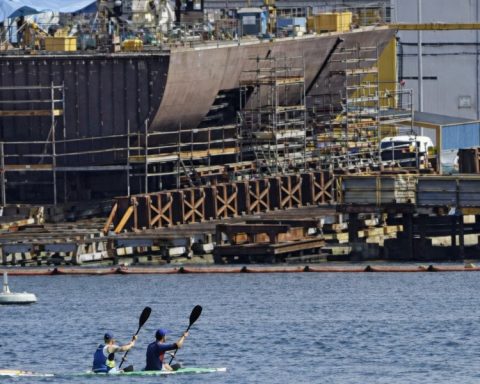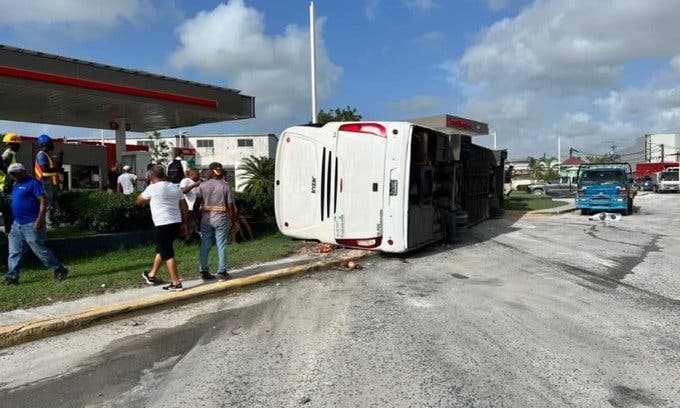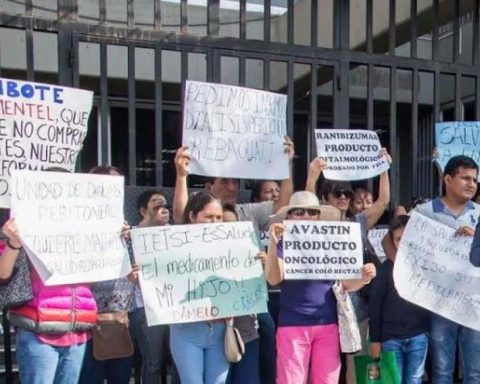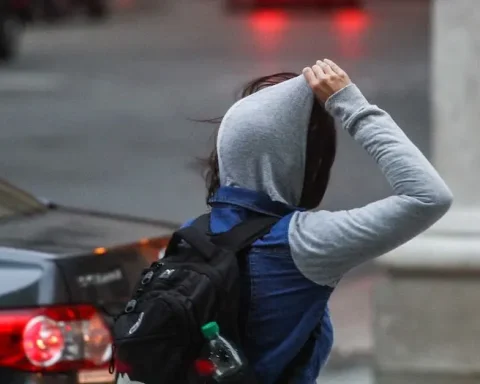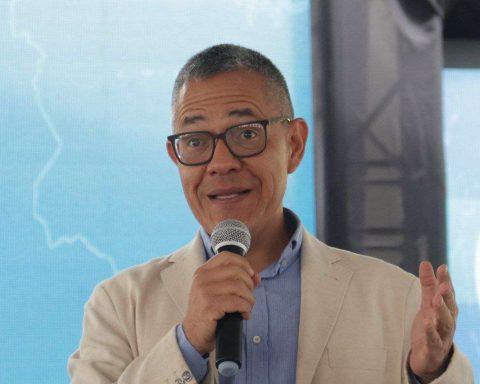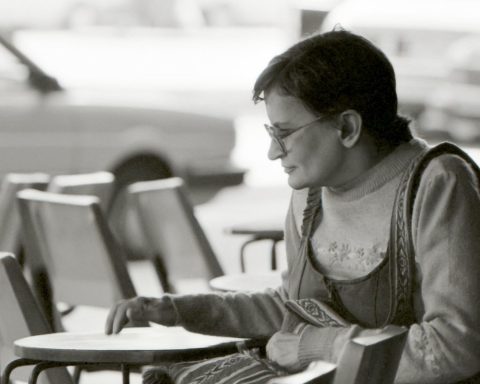The activity, held at the Uruguay Golf Club in Montevideo, was led by the president, Luis Lacalle Pou. The Vice President of the Republic, Beatriz Argimón; the secretary and deputy secretary of the Presidency, Álvaro Delgado and Rodrigo Ferrés, respectively, and the ministers of Transport and Public Works, José Luis Falero; Environment, Adrian Peña; Labor and Social Security, Pablo Mieres, and Housing and Territorial Planning, Irene Moreira.
Also present were the presidents of Antel, Gabriel Gurméndez; UTE, Silvia Emaldi; the Central Bank of Uruguay, Diego Labat; the Institute for Children and Adolescents of Uruguay (INAU), Pablo Abdala, and the National Agency for Research and Innovation (ANII), Flavio Caiafa.
The leaders were received by the presidents of the different unions linked to the sector: Diego O’Neill, from the Chamber of Construction; Manuel Ríos, from the Construction League, Gustavo Robayna, from the Eastern Construction Industry Coordinator, and Ignacio González, from the Association of Private Construction Promoters.
Arbeleche highlighted the dynamism of the sector, which can be seen in the level of its growth and its ability to generate jobs, he specified. In the first half of 2022, it grew by 7.6% compared to the same period of the previous year. As for job creation, in the first six months of this year, 2,400 more jobs were created than there were in a similar period of 2021. “We must remember that this sector is one of those that has not had a loss of real salary” , he added.
Much of the increase is due to public investment, the minister said. In the period 2020-2024, 3,300 million dollars will be executed in road infrastructure. If what is assigned to railway, port, communications and energy infrastructure is added, the figure rises to 9,300 million in the five-year period. Meanwhile, if the resources allocated to housing are considered, some 10.8 billion dollars of investment in public works will be reached, she reported.
Likewise, the national government stimulated the realization of private investments. As an example of this, the hierarch mentioned the modifications to the investment promotion regime for works of great economic dimension. “If we add the number of projects presented to date, we reach 2,240 million dollars in large-scale works,” he said. He also highlighted the modifications to the promoted housing law, which “add some 2,260 million dollars,” he added.
“This economic recovery that we are experiencing has to be done within the framework of inclusive and sustainable development. Inclusive, because no one can be left out. Sustainable, because you have to think not only about the current generation, but about future ones”, he considered. In this sense, he recalled that the Government presented in recent weeks a framework for the issuance of a bond indexed to climate commitment instruments, which makes the economic aspect compatible with the environmental one.
For his part, Minister Peña underlined the Government’s commitment to environmental matters, by establishing lines of work regarding water quality, sanitation, waste, biodiversity, climate change and environmental awareness. As far as construction waste is concerned, the ministry is trying to draw up a decree to value it, so that much of it can be transformed. “The path is to go towards a concept of sustainable cities,” he said.
Falero: “there are clear signs” of a change
The Minister of Transportation, José Luis Falero, meanwhile, said that the current administration not only focuses on the amount of the investment, but also on the quality of the infrastructure works. He stated that there are clear signs of a “necessary and indispensable” change for Uruguay, which attends to the areas that were postponed and works are carried out that ensure durability. Likewise, the road plan foresees increasing the length of the roads to optimize mobility. 642 kilometers of new routes will be added, he reported.
